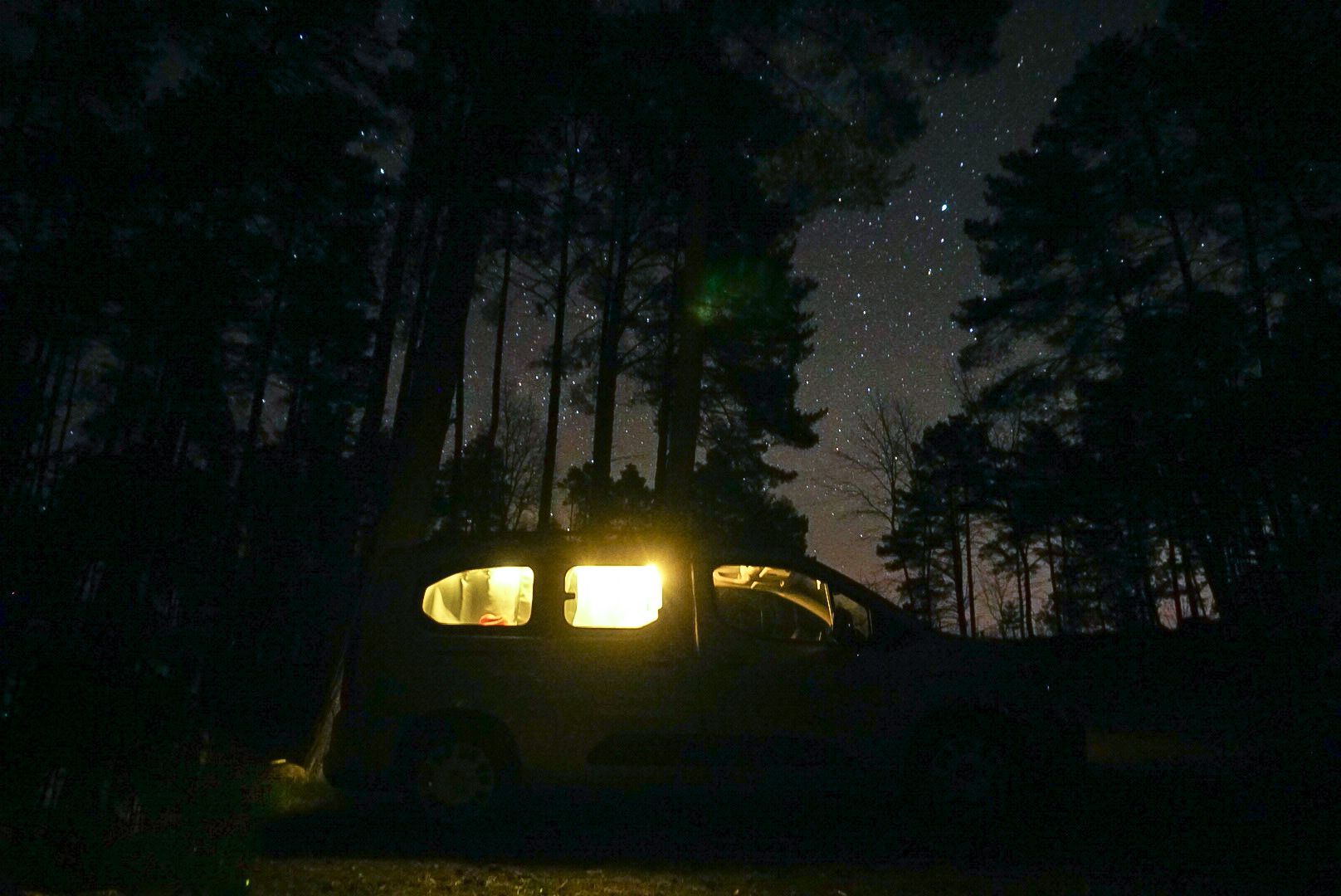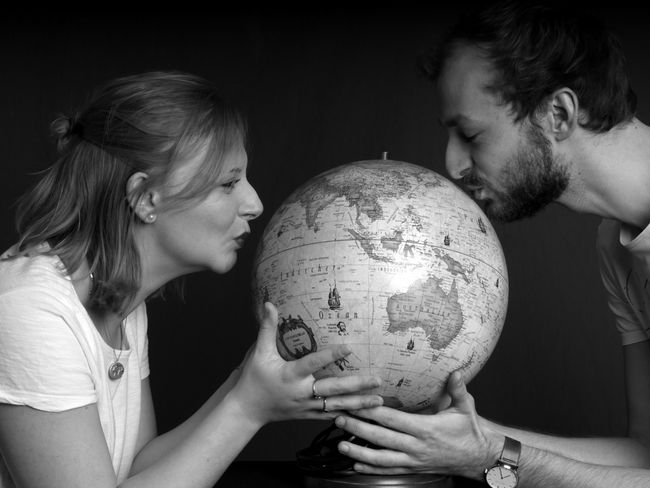Oribi Gorge NP & South Africa's Wild Coast
Publicat: 10.03.2023
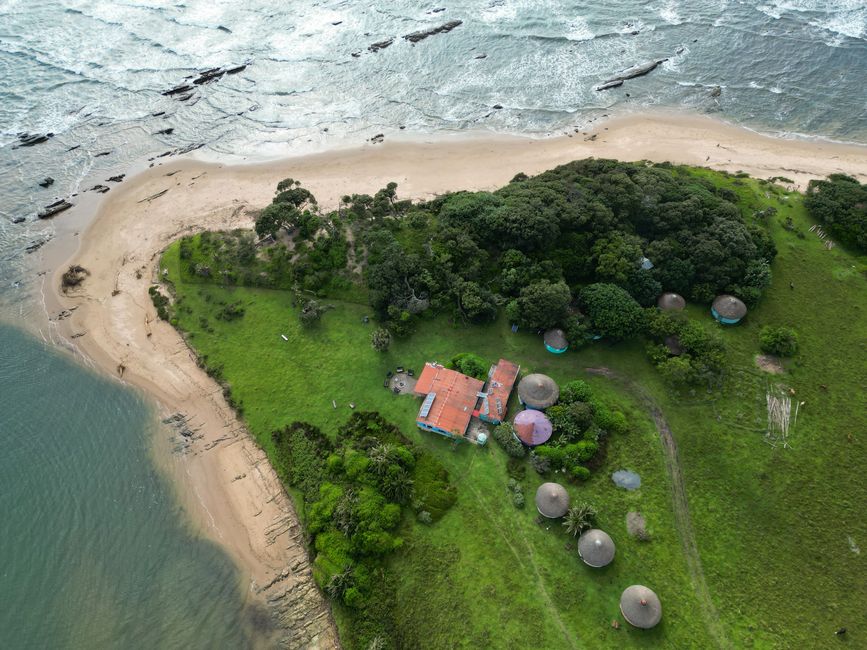
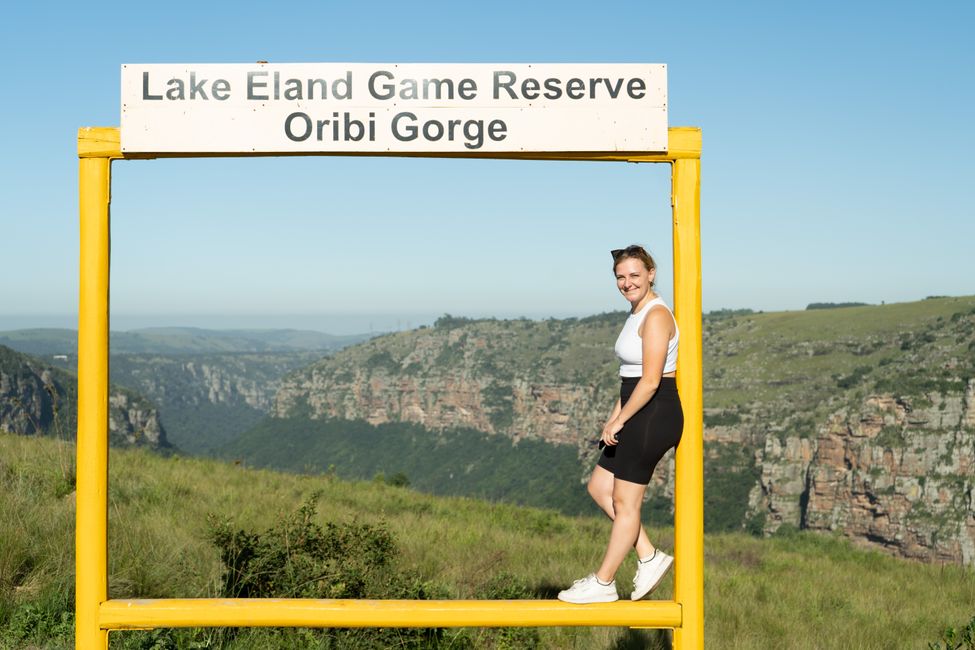
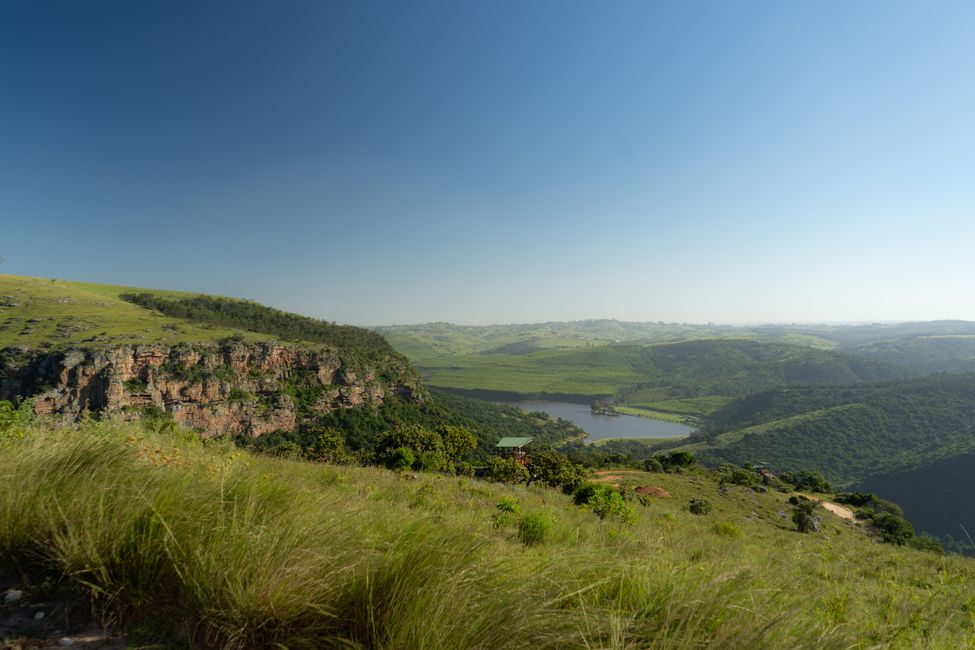
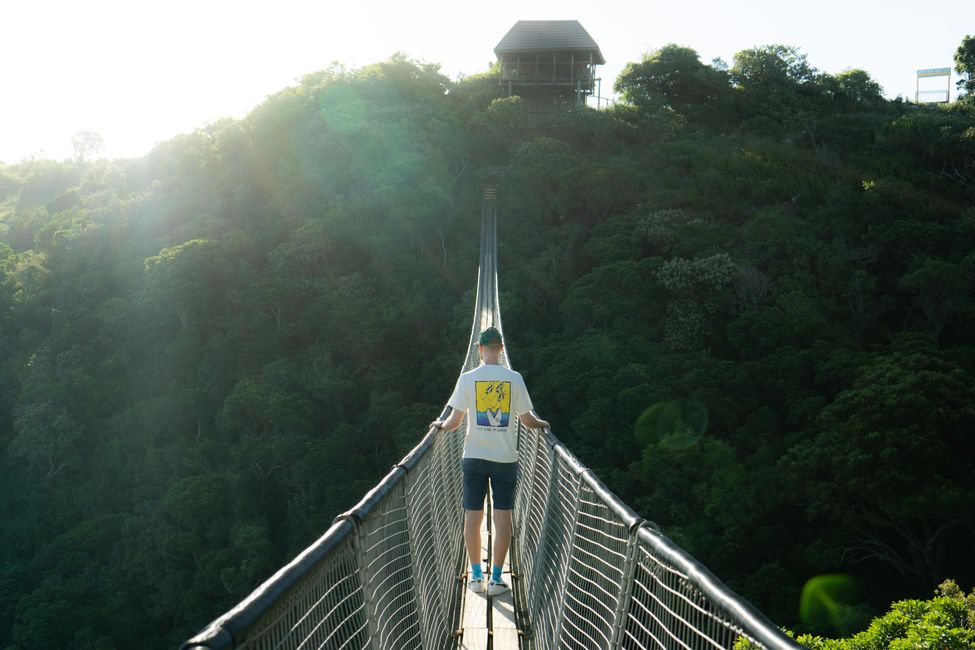
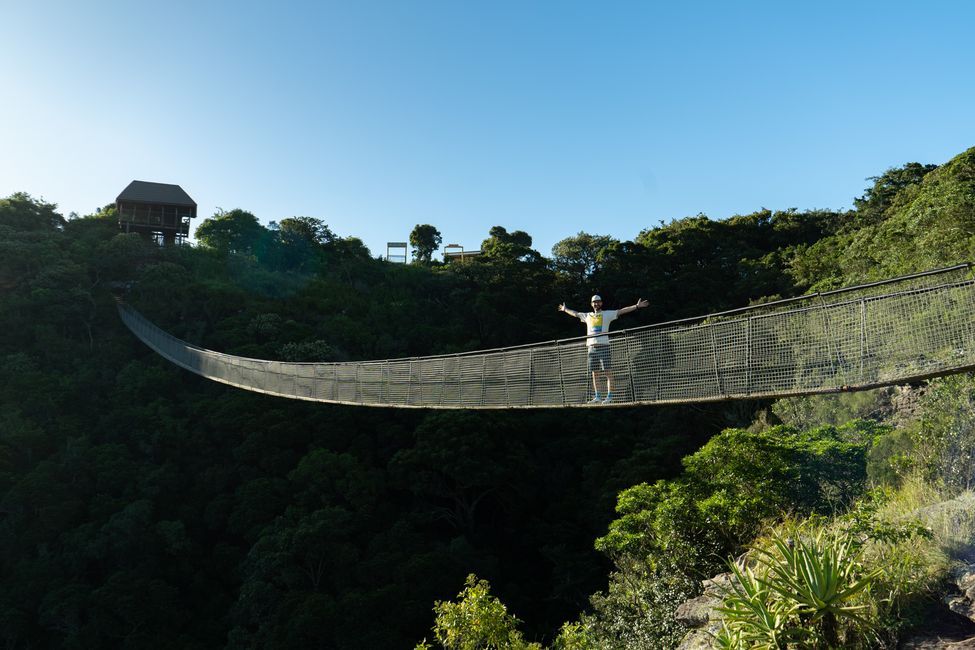
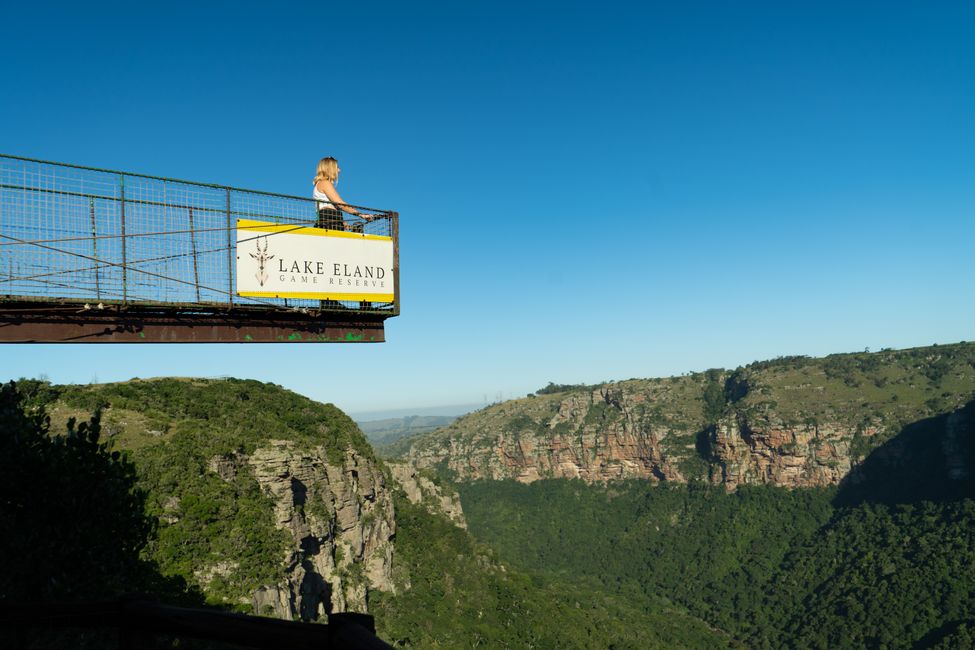
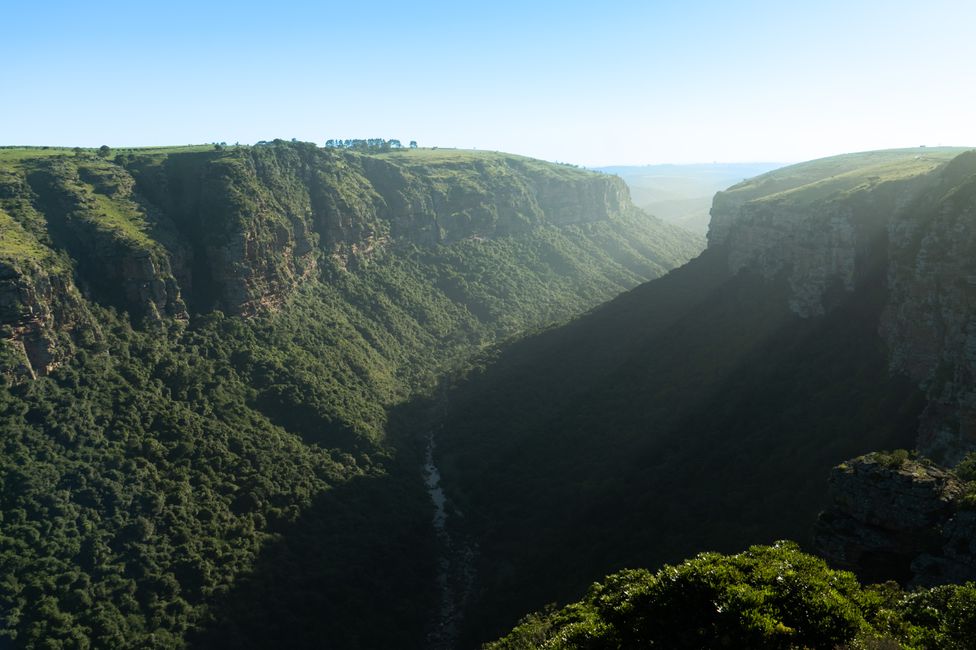
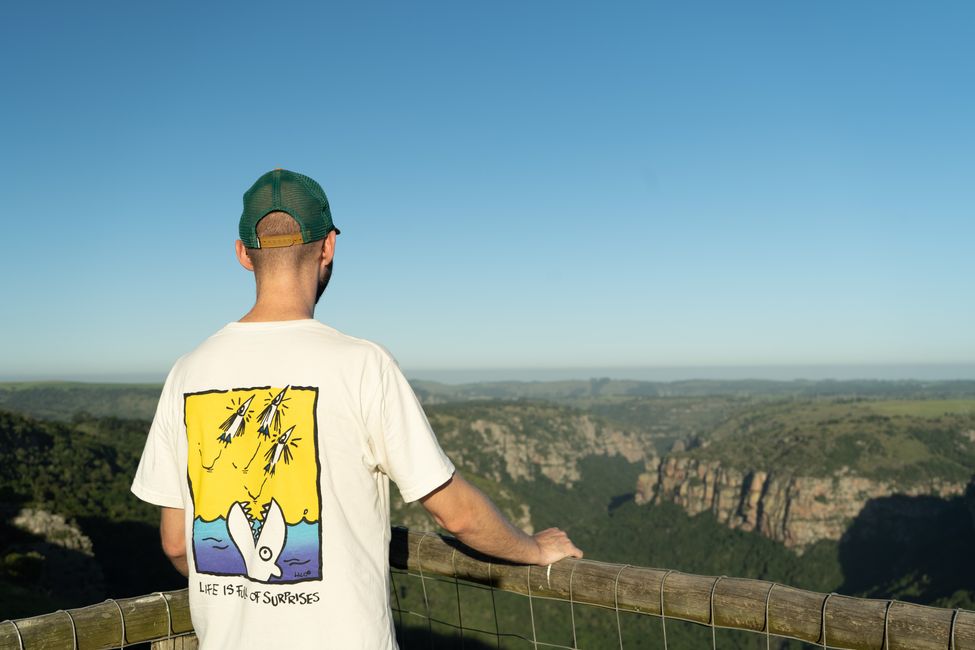
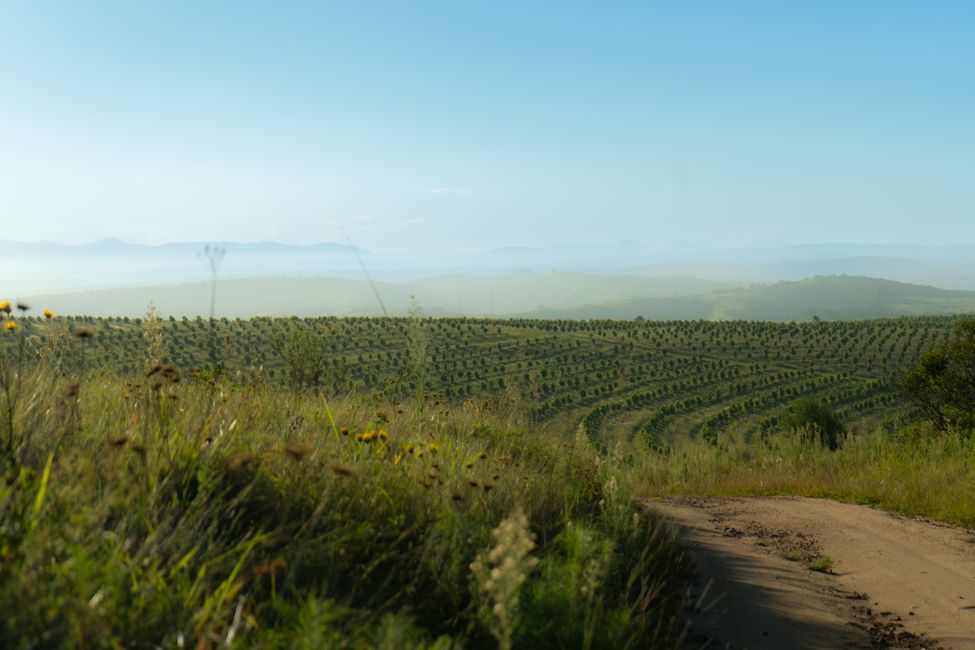
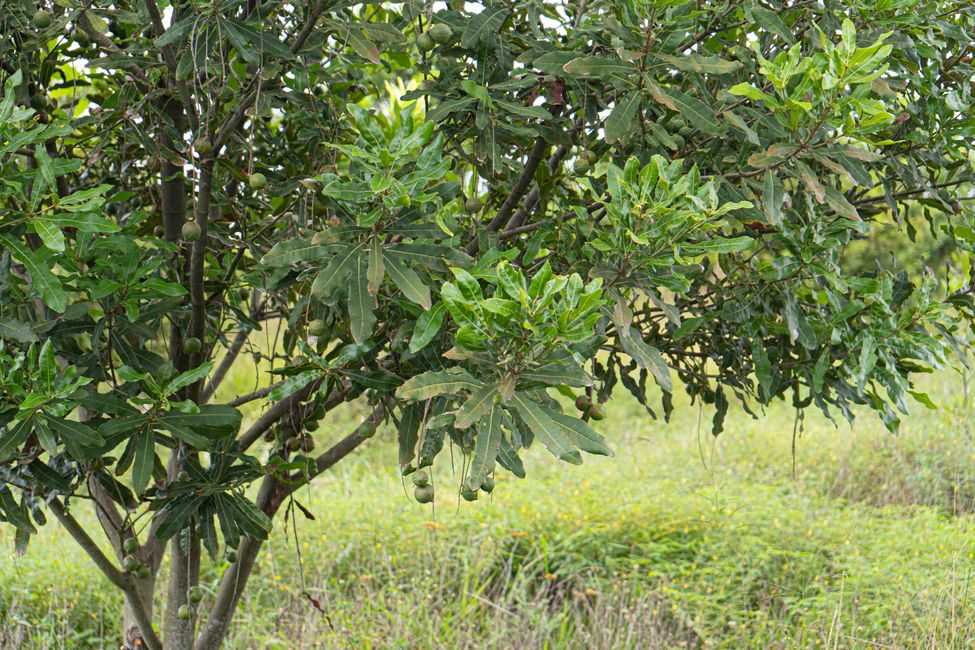
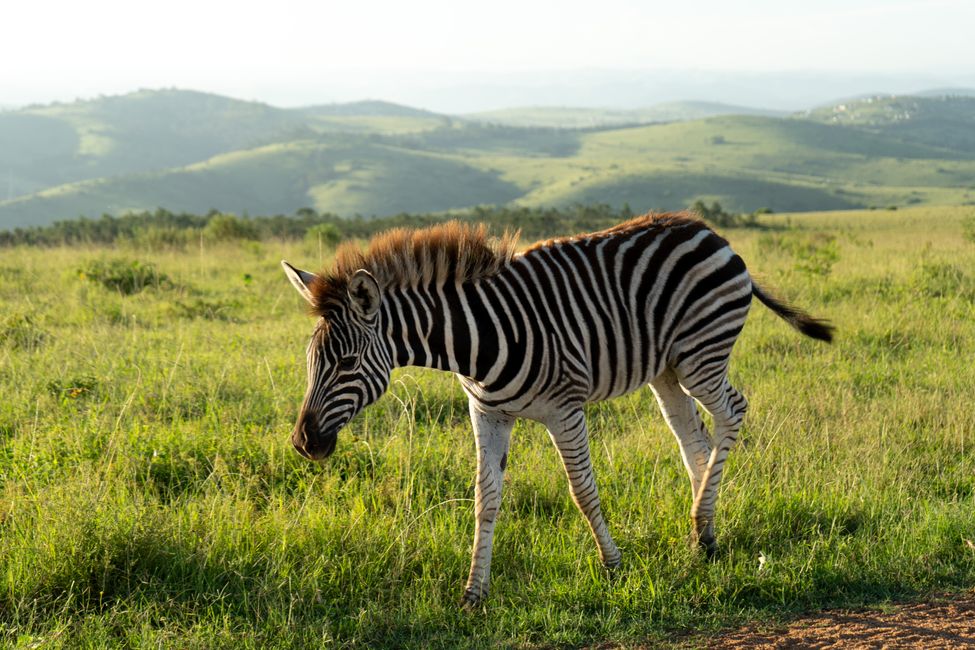
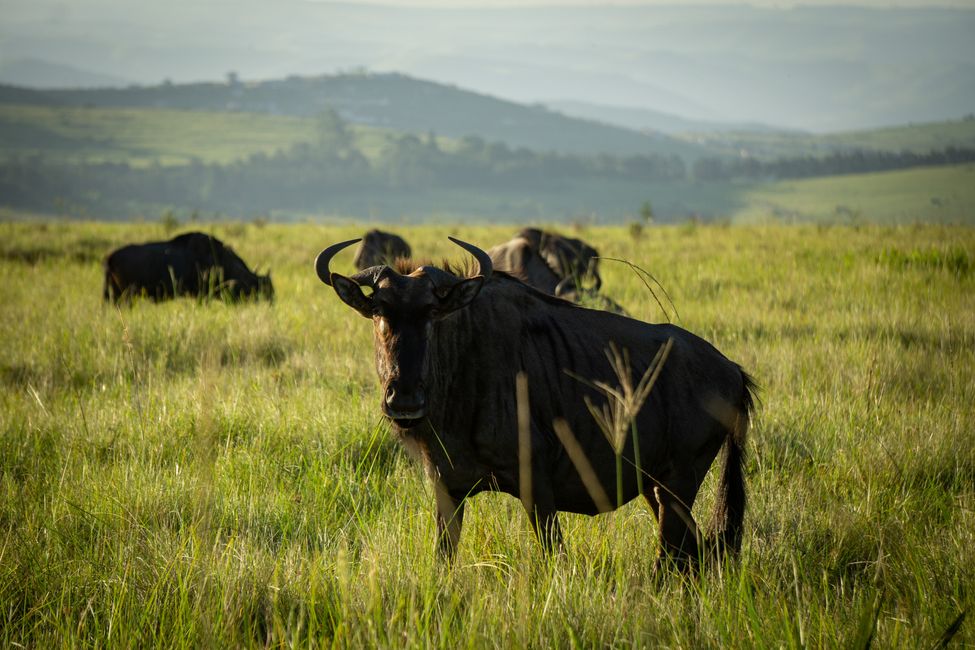
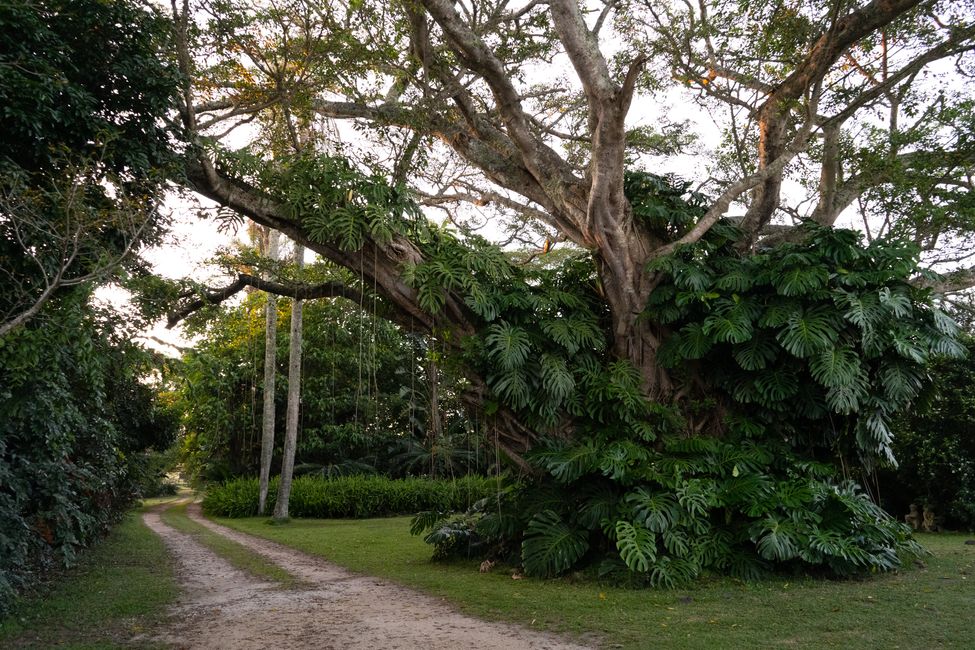
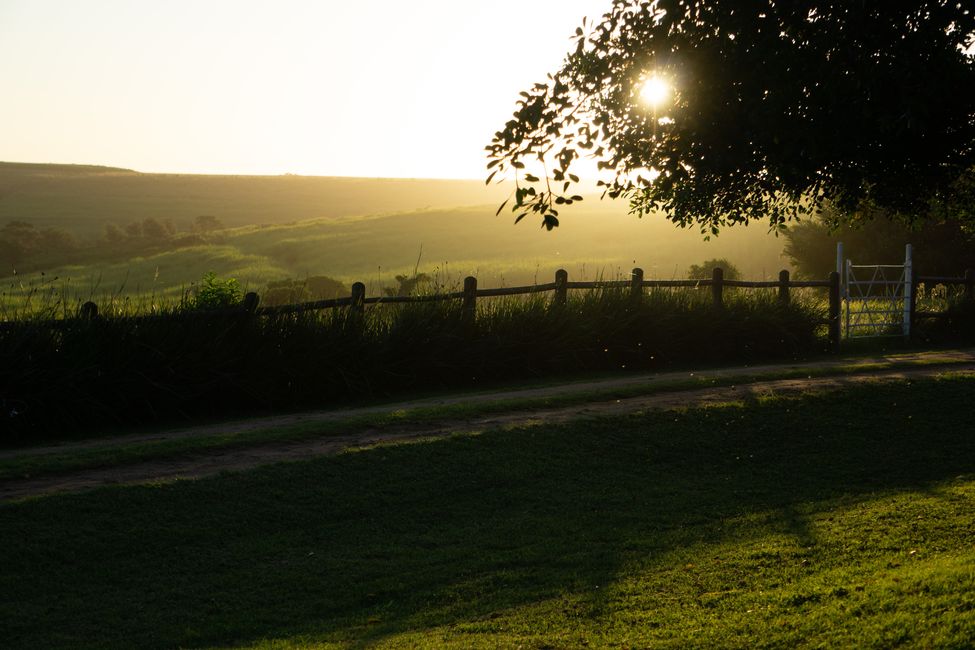
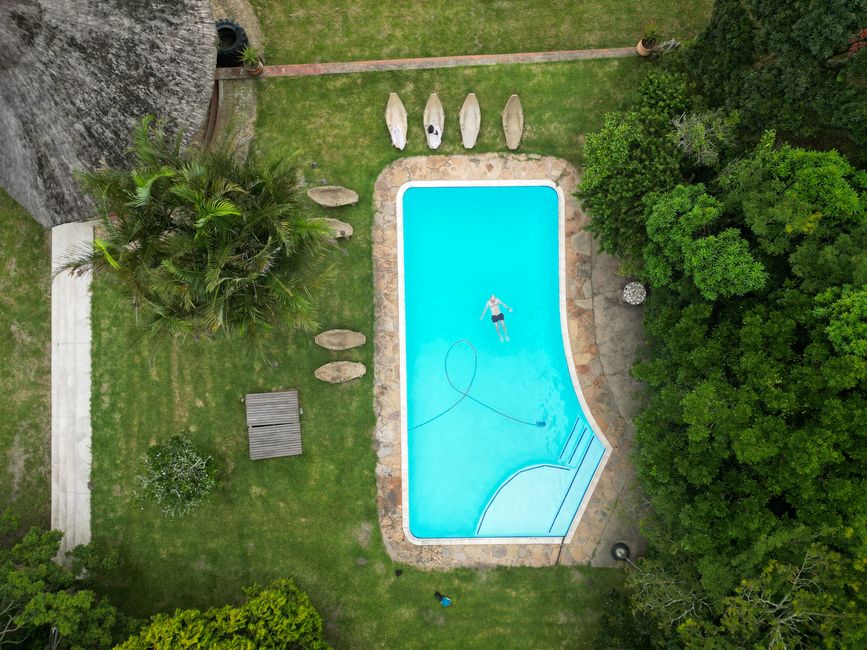
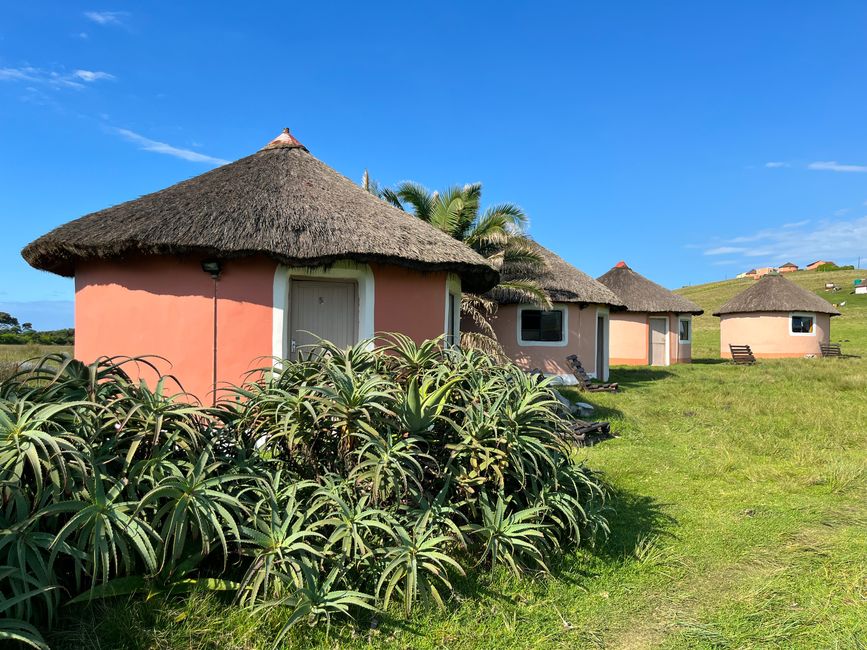
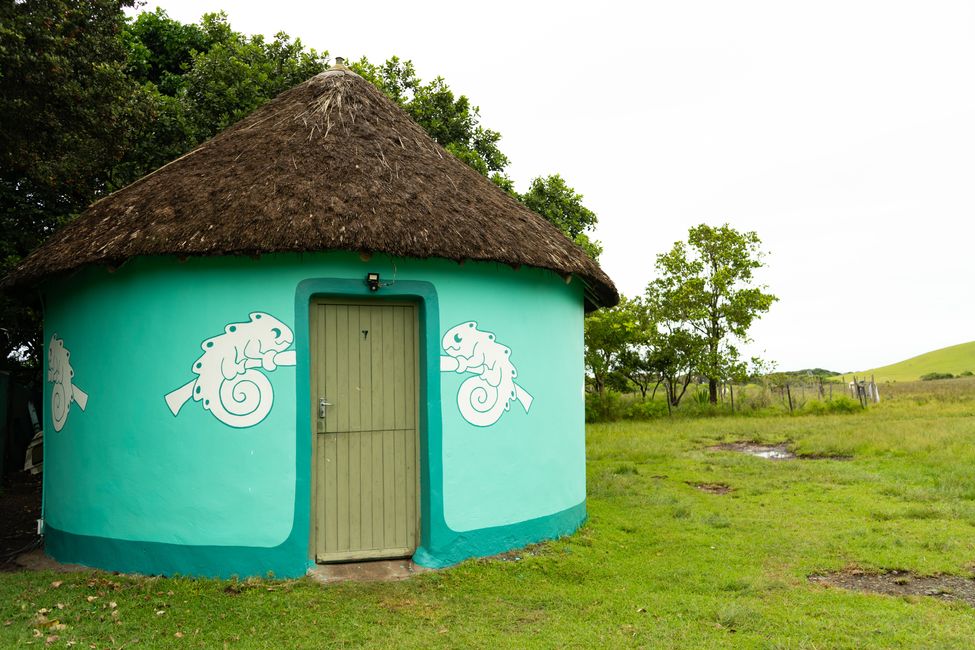
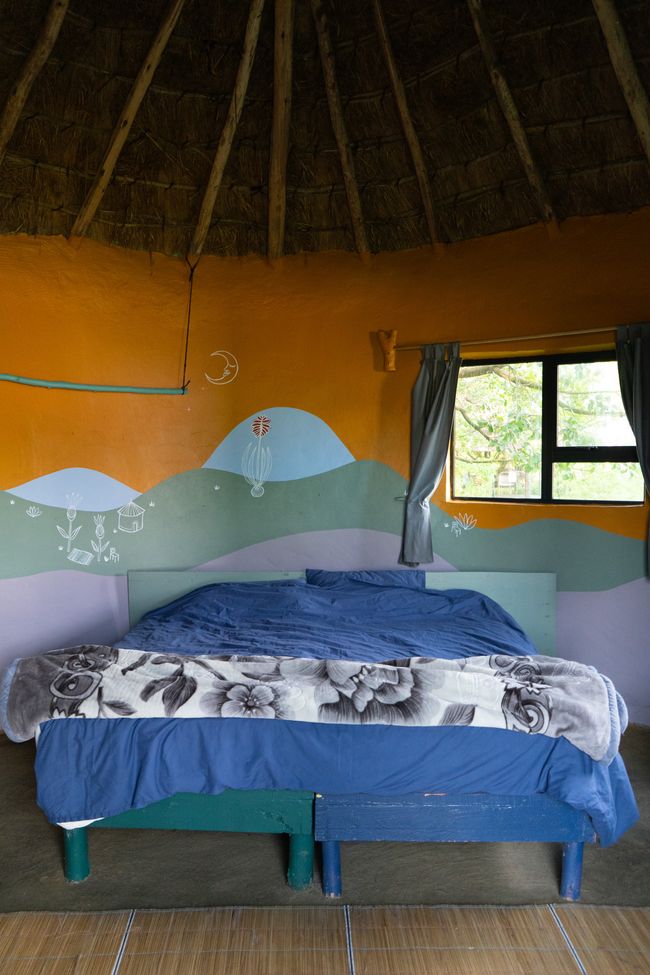
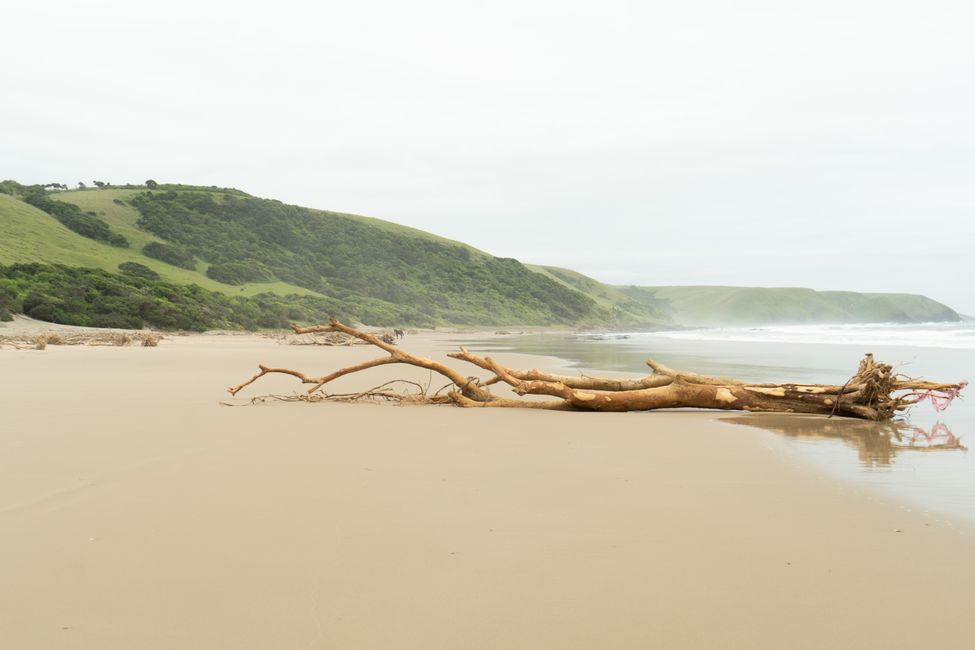
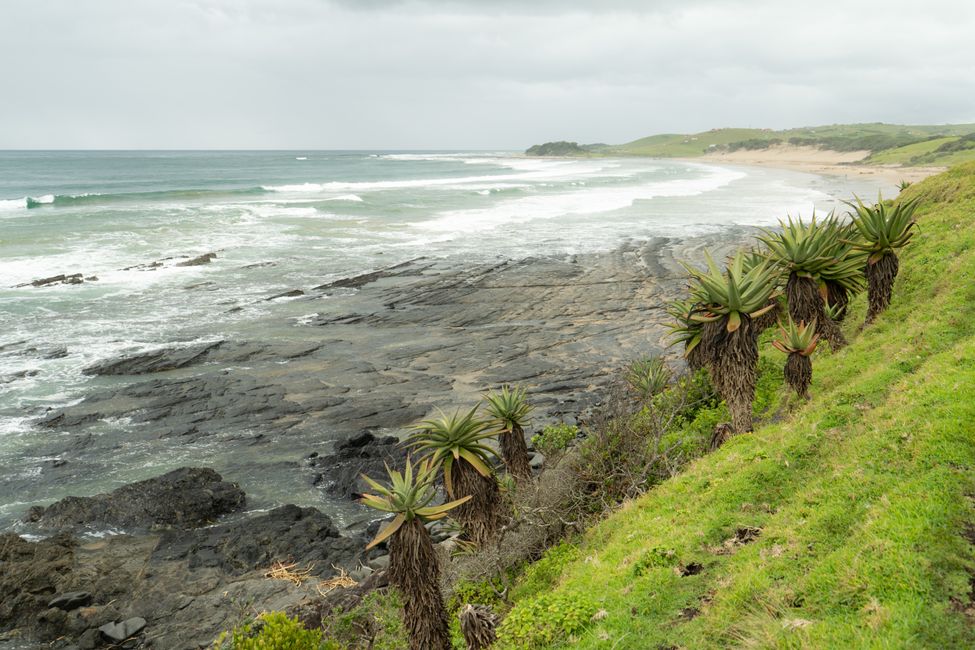
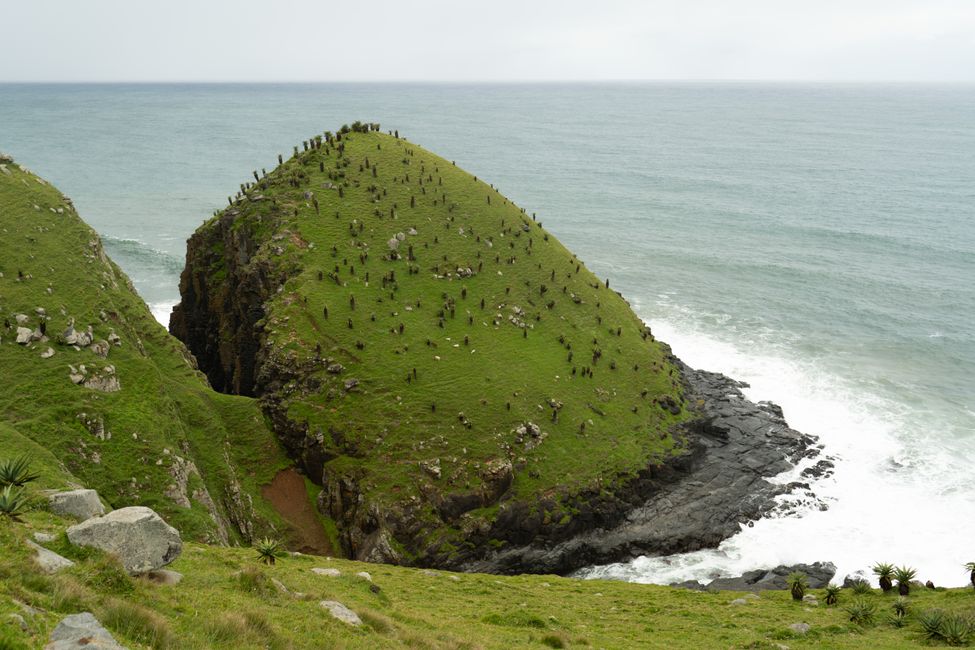
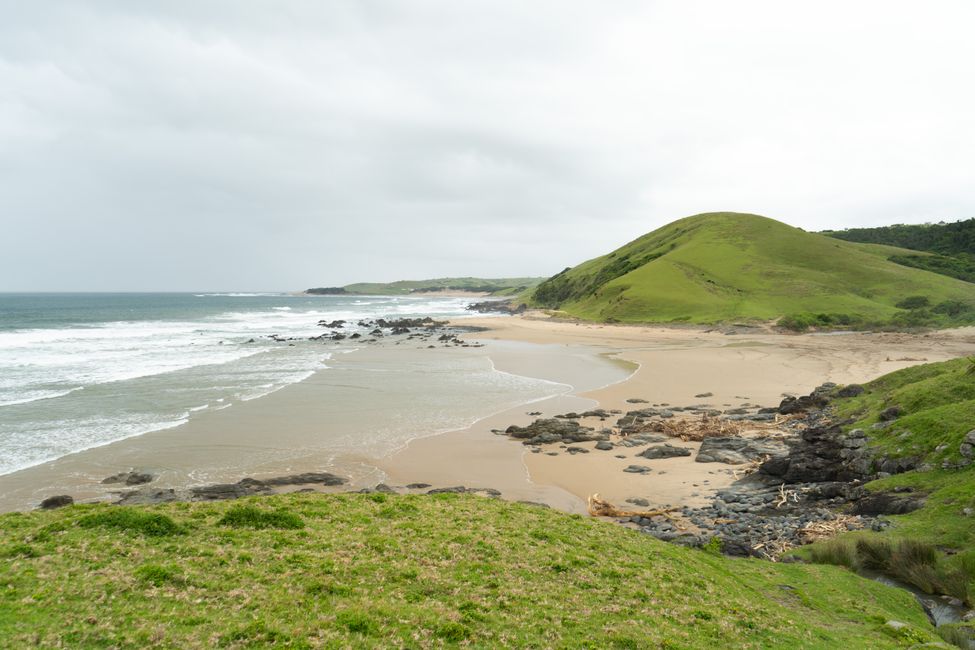
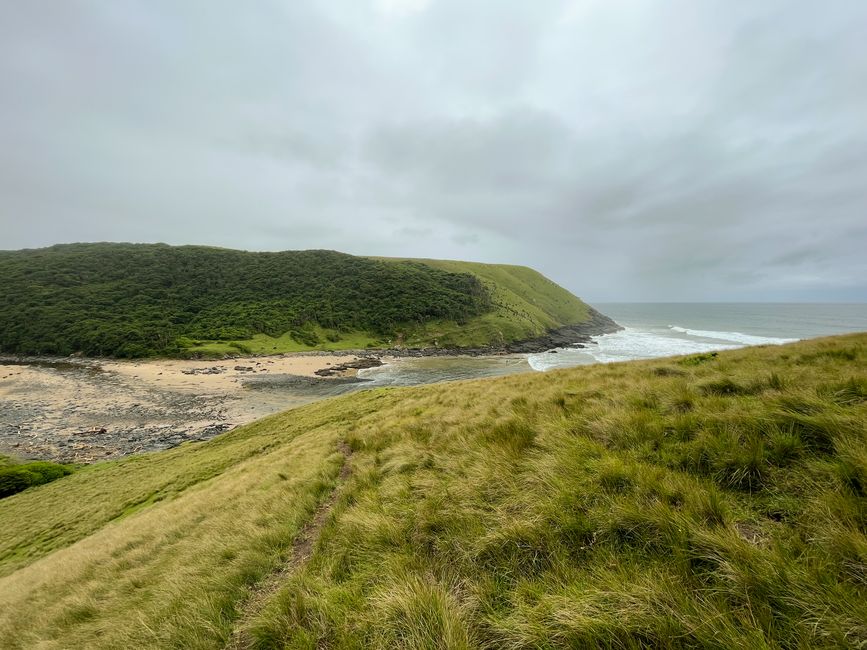
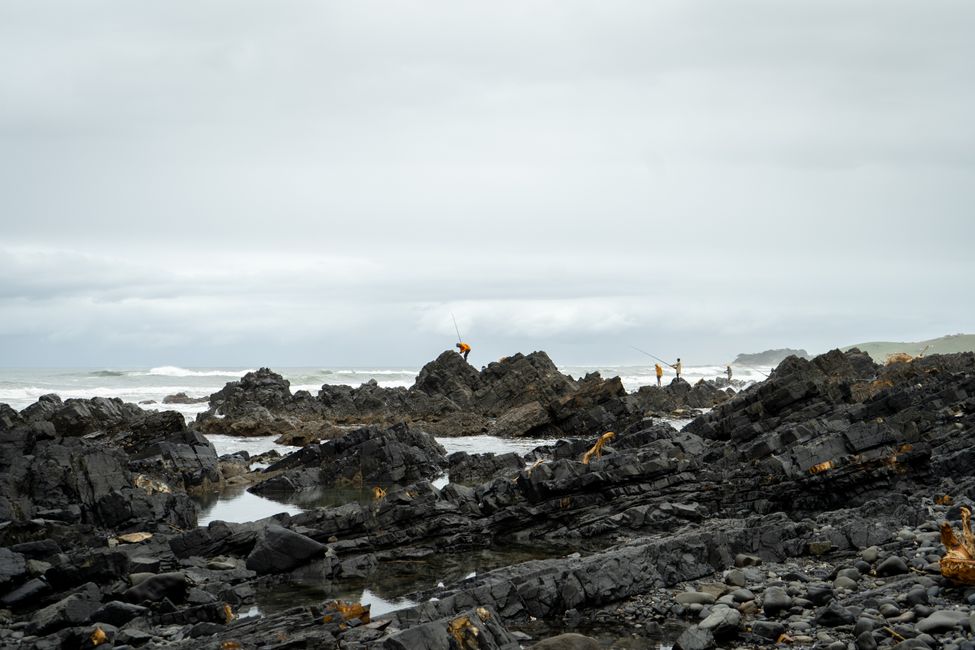
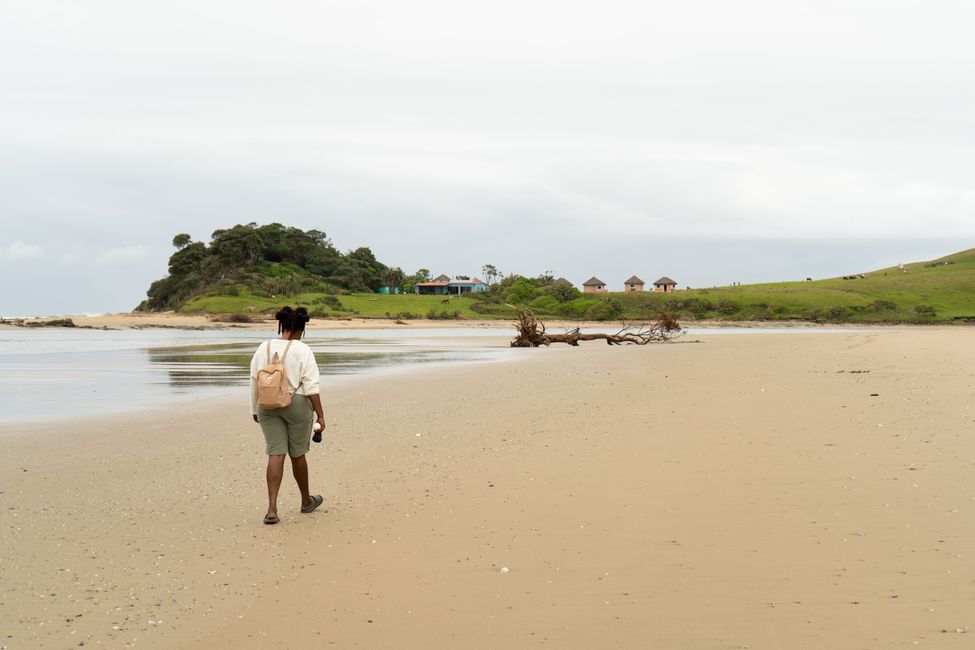
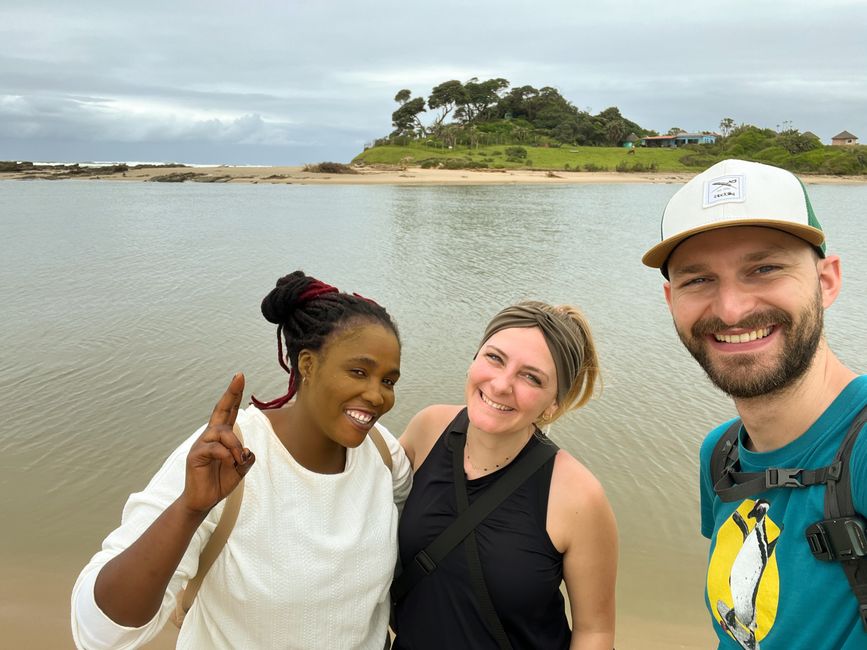
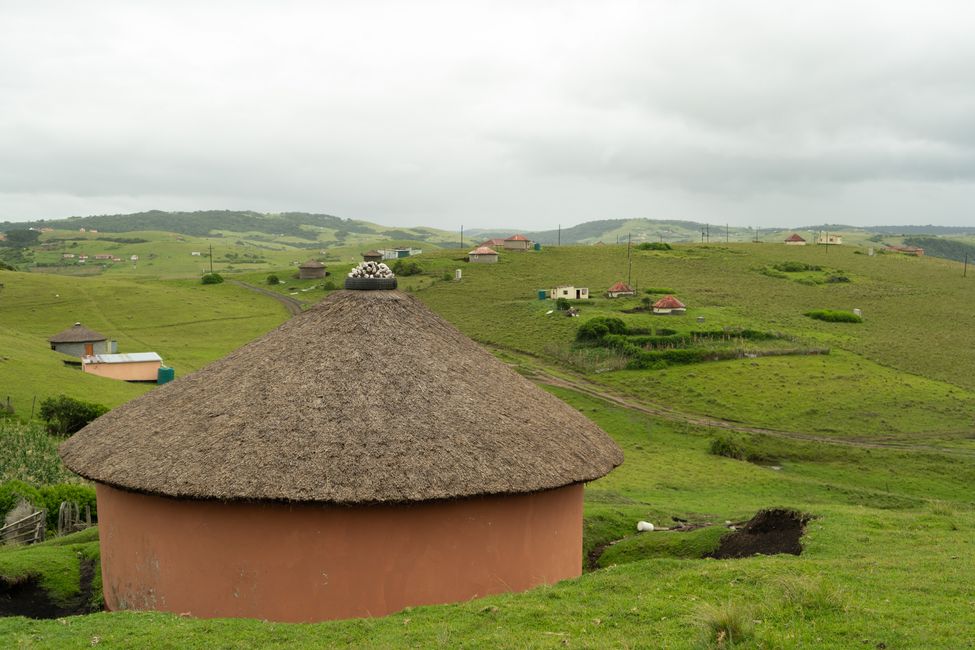
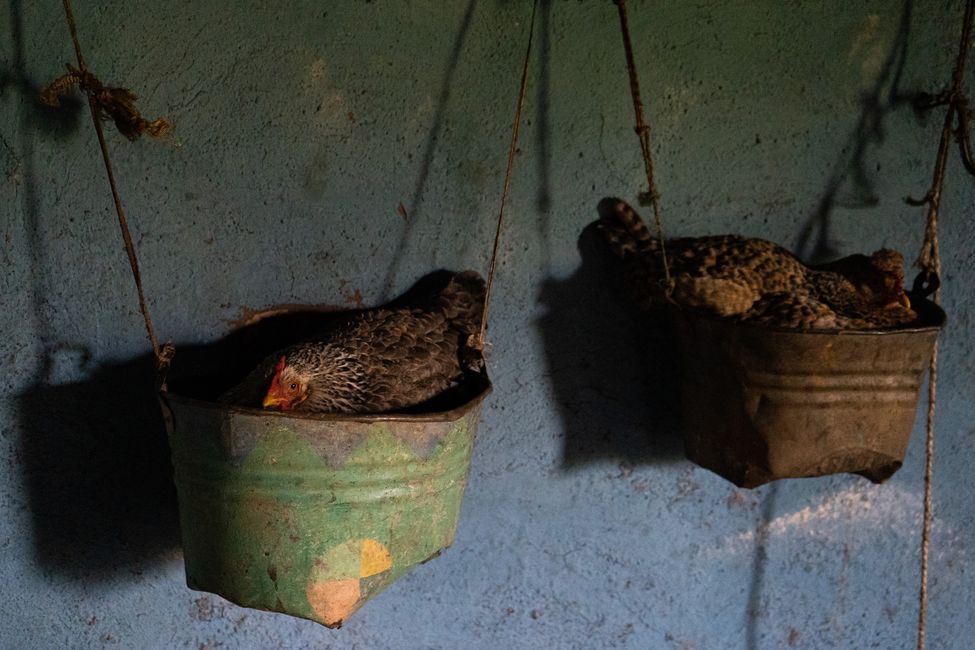
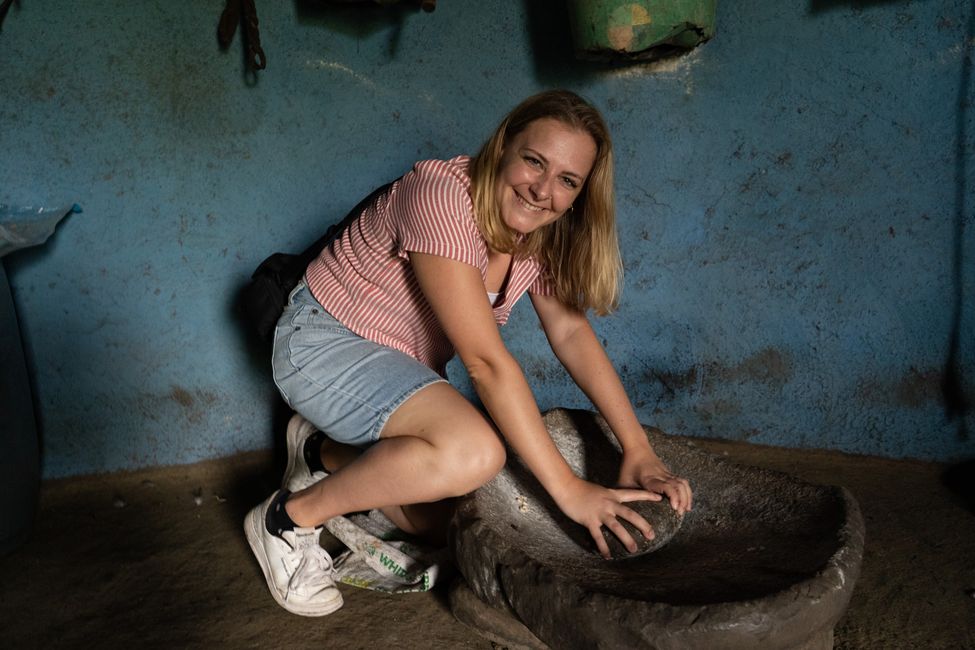
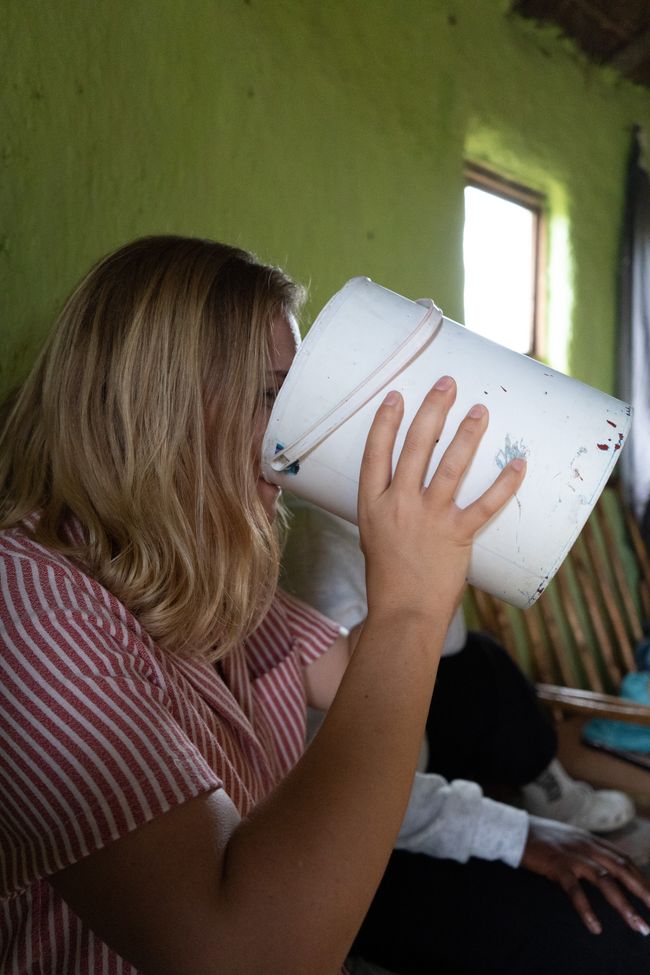
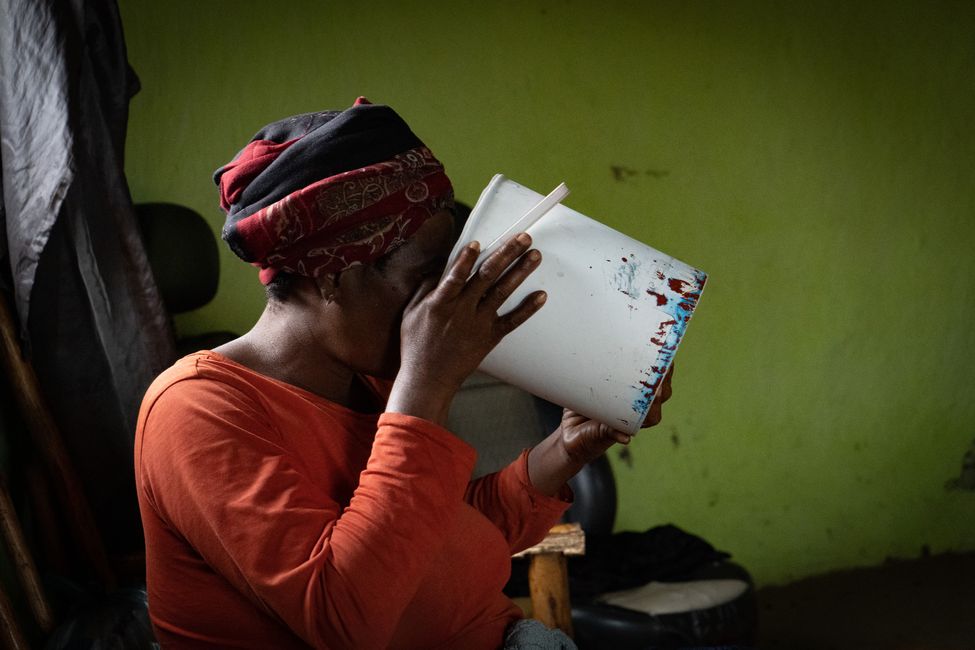
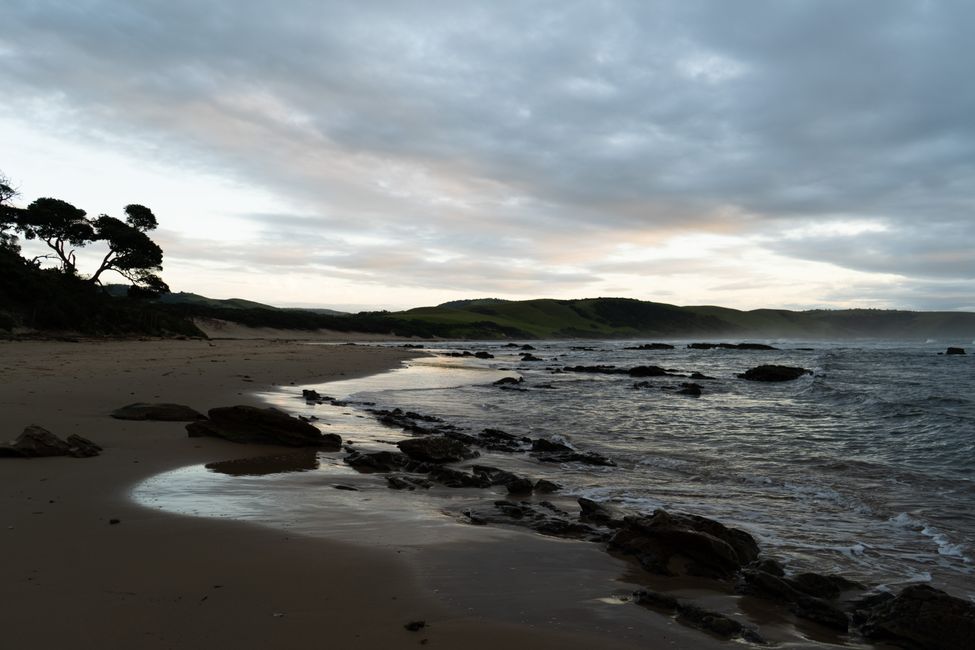
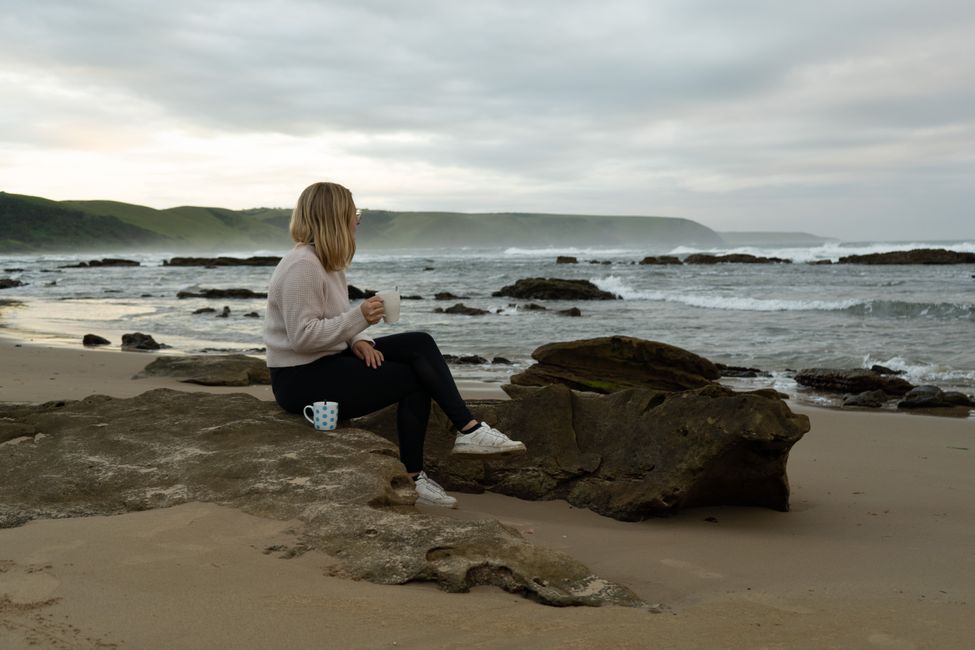
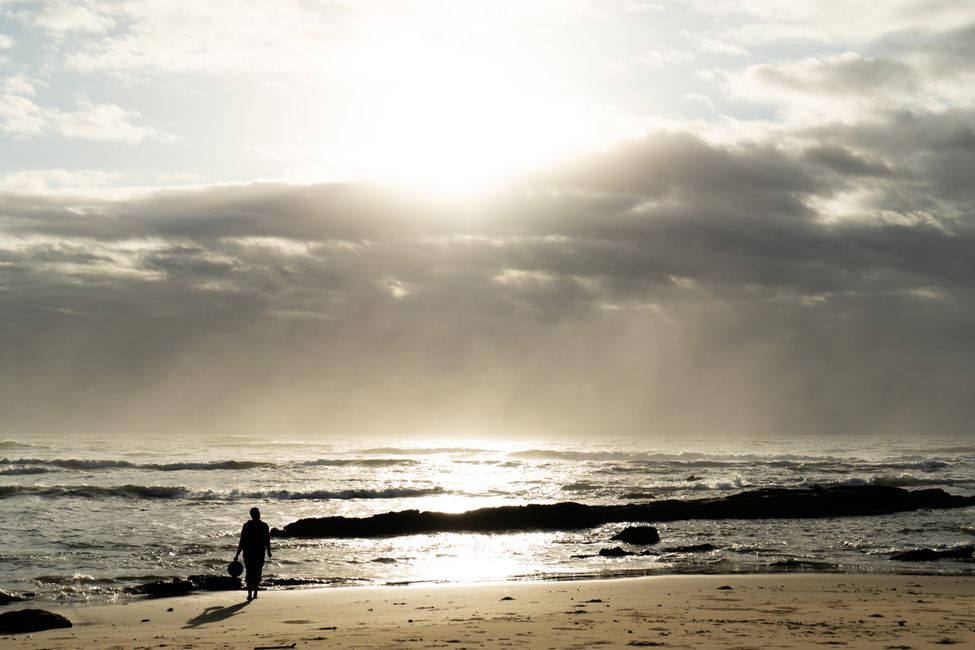
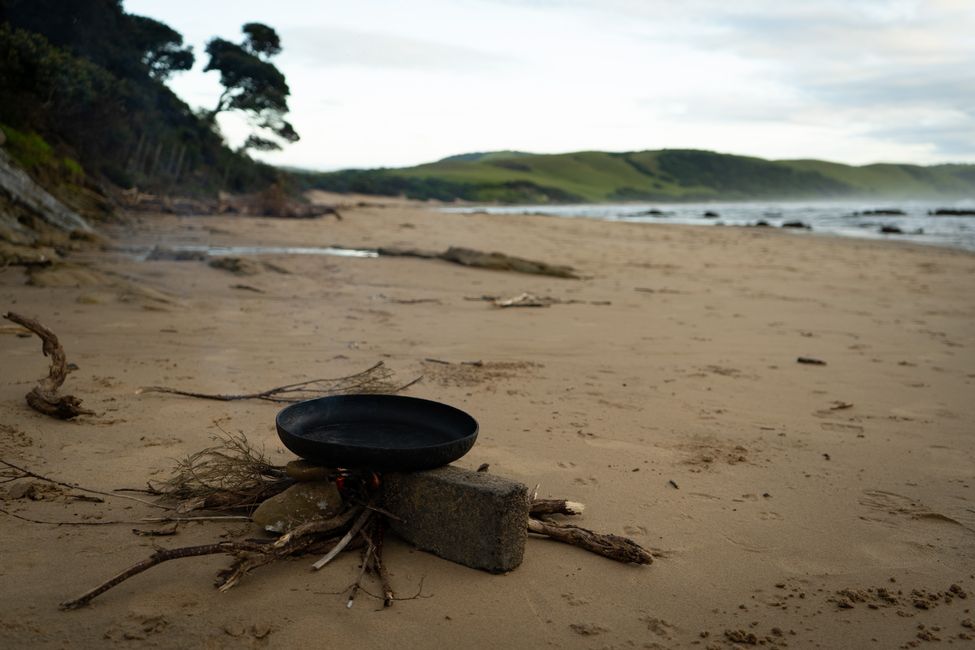
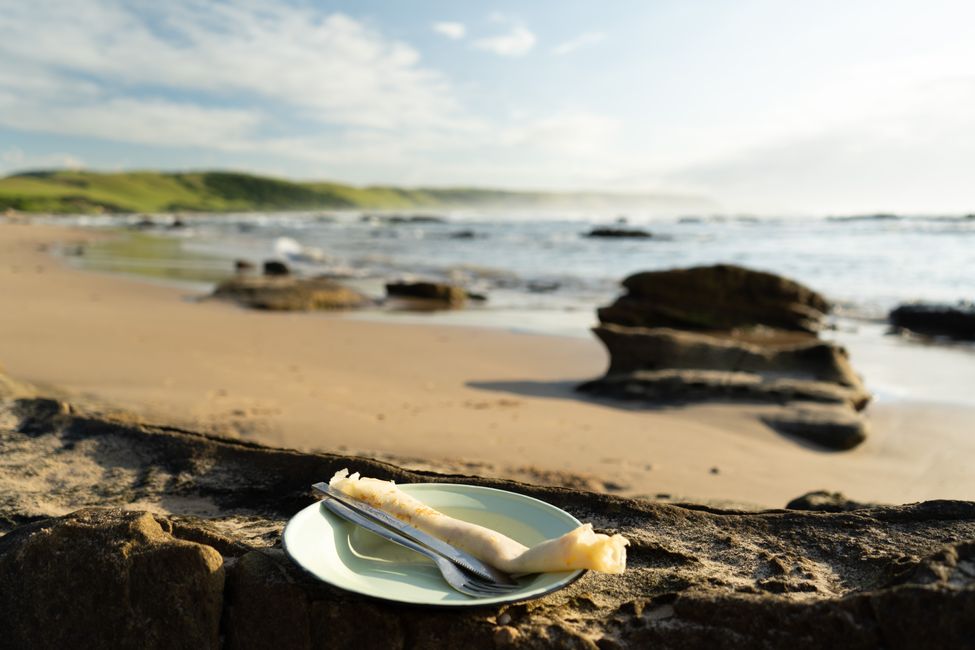
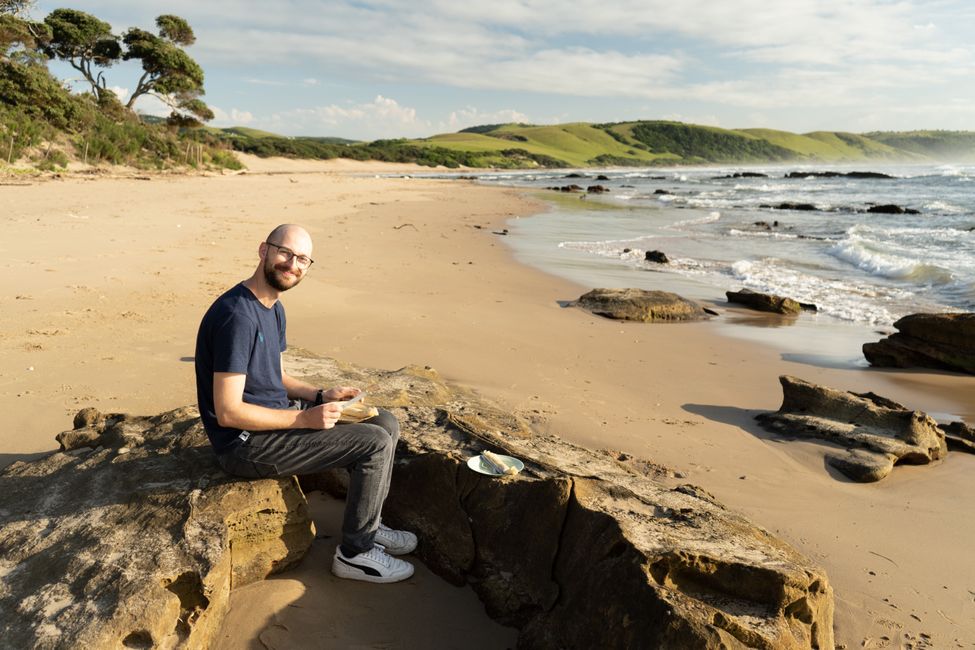
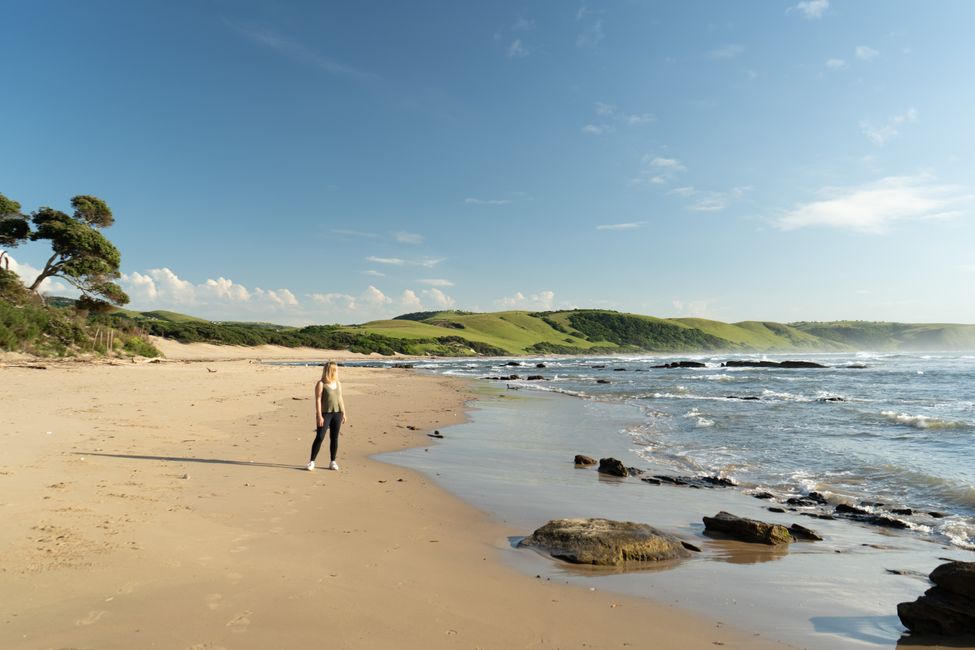
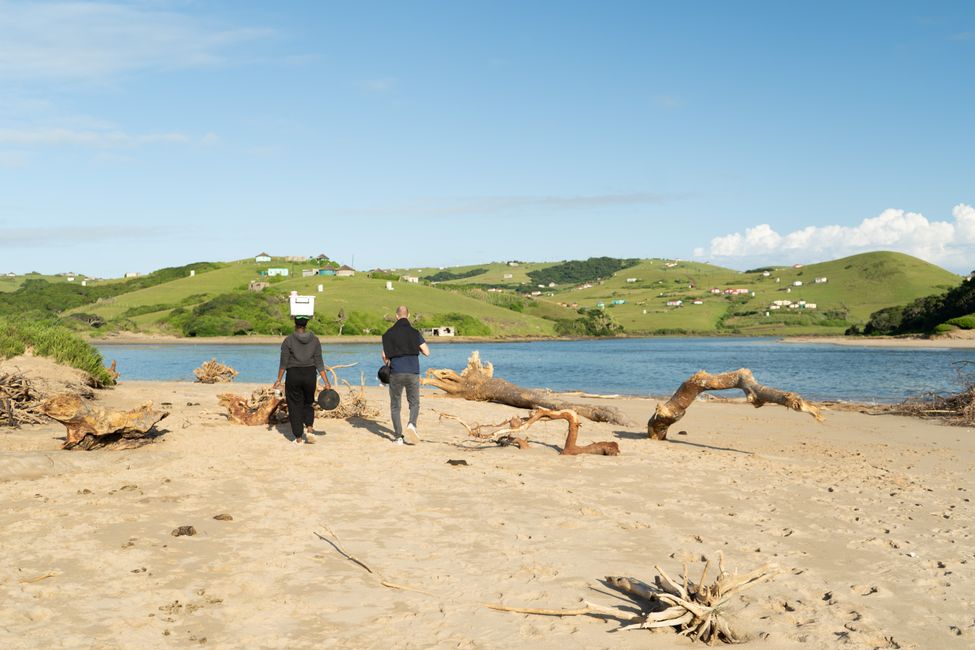
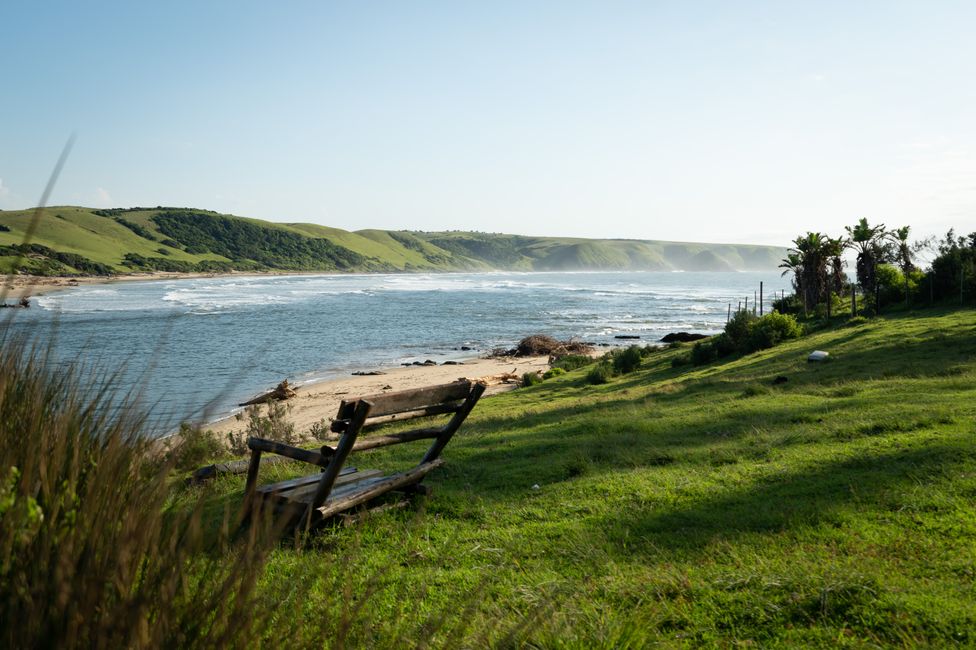
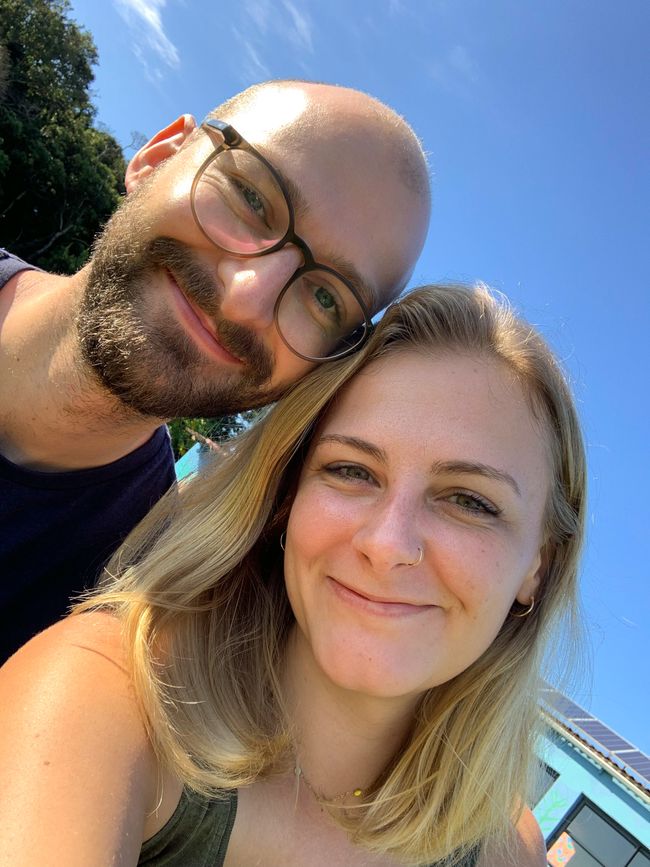
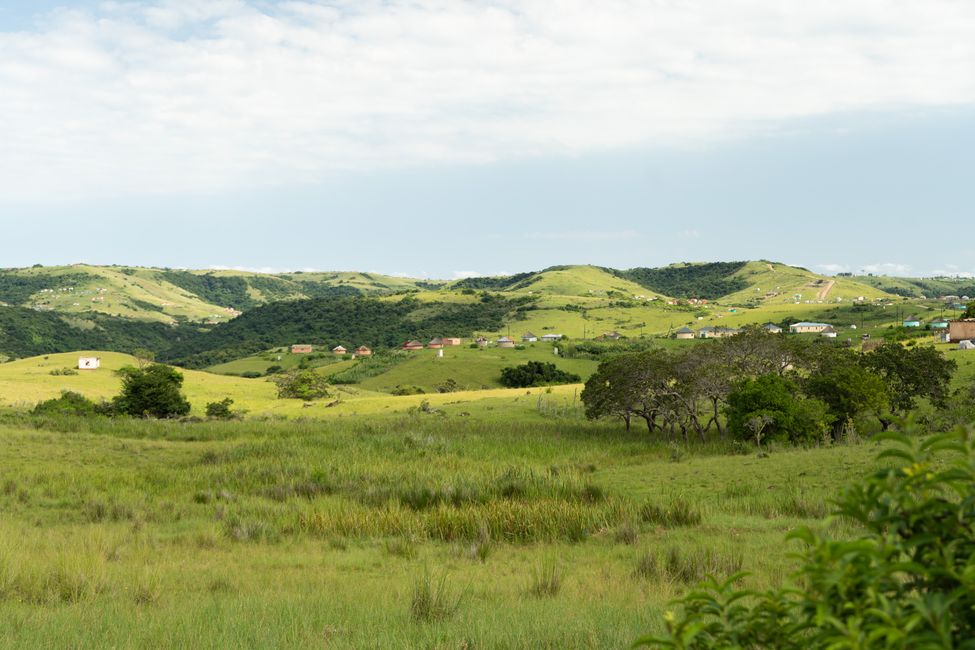
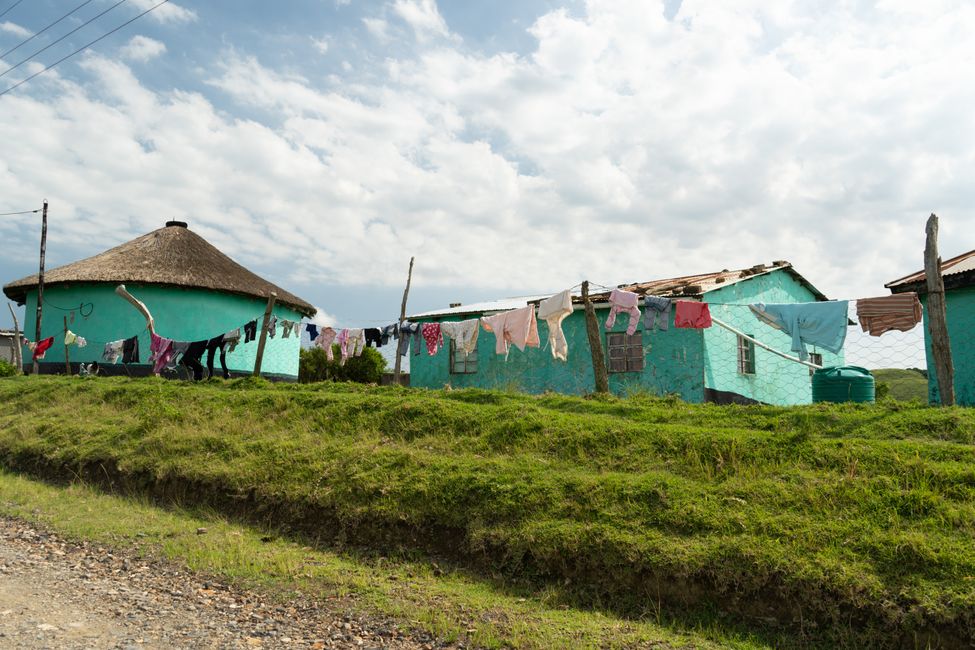
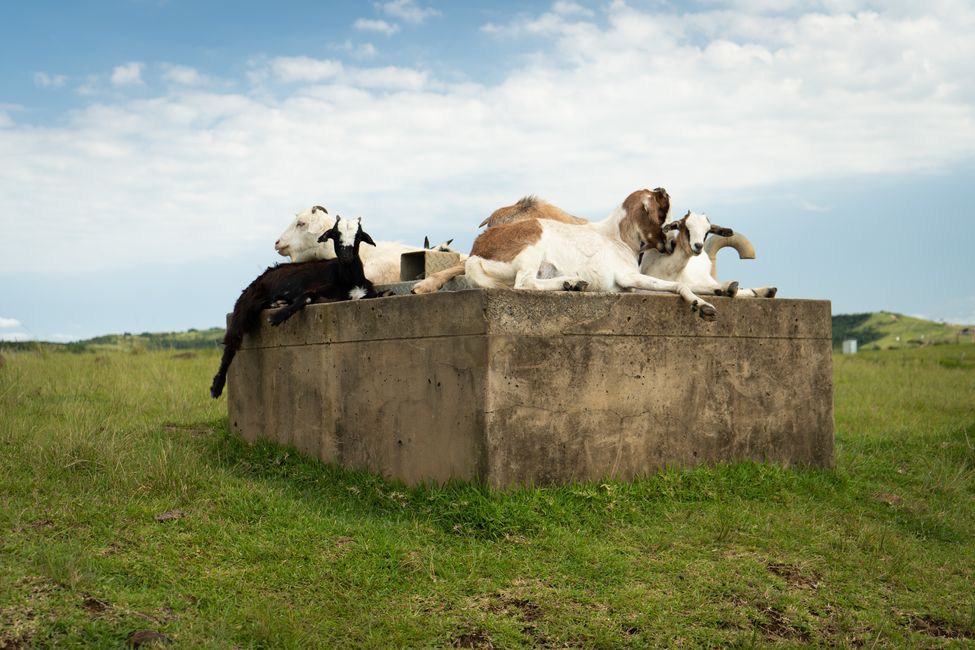
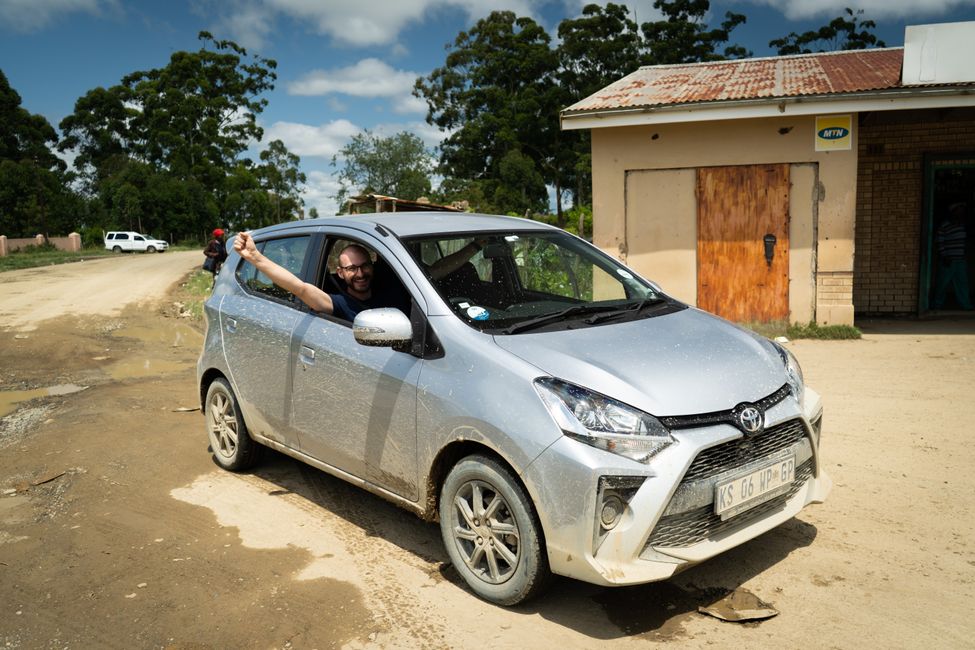
Subscriu-te al butlletí
After about 5 hours drive from St Lucia via Durban (with a short lunch break), we arrive at our accommodation in Oribi National Park. We quickly check in to our beautiful accommodation on an old farm with a beautiful garden, then we drive a bit further to Lake Eland Game Reserve.

We rush through the gate just before the last entry and have 2 hours to explore the park.
On bumpy gravel roads, we pass peacefully grazing antelopes, bucks, zebras, and monkeys.

The view over the green hills is fantastic and the low-lying sun casts a magical light on the landscape. The area is characterized by many macadamia nut plantations.

But our actual goal is the suspension bridge that spans the nearby canyon. First, Carsten bravely balances across the swinging 80-meter-long and 130-meter-high bridge, followed by Tina. At this time, we are the only guests, so we can take our photos in peace.

Now we have to quickly get back before the gate closes and we can't get out of the park anymore.
The next morning, we jump into the pool to wake up, have breakfast, and sit on our beautiful veranda.

Then it's time to say goodbye again, because we still have a long way to go to the Wild Coast today.
The journey takes us through the impressive Oribi Gorge Canyon, where we pick up two hitchhikers for a few kilometers.

We notice that our left front tire is losing some air, but we can't find any holes. So we stop at a gas station every 200 km to check the tire pressure.
As if our little car hasn't experienced enough with us yet, it now has to prepare for completely different adventures: 38 km of unpaved roads await us from Mthatha to Bulungula, a small village of the Xhosa people on the Wild Coast. The GPS shows 2h15min for 38 km - this could be interesting...
The gravel road is full of countless potholes and mud holes, and we keep wondering if this was really a good idea and if we should just give up on our booking. We encounter partly unbelieving, partly curious and laughing faces along the way - the Xhosa are said to be the friendliest people in the country (but maybe they are just laughing at us in our car...). Children run after us and ask for sweets, but unfortunately we are not prepared. The 2 hours and 15 minutes turn into more and more, as we average about 15 km/h. Suddenly we are faced with a large water hole that takes up the entire road and we think: "That's it. We will never get through." We are just considering turning around and the typical minibusses come by. They assure us that even with our car we can get through and that it won't get any worse afterwards. They drive ahead and we follow. With a little momentum, some groaning from our car, and high water fountains, we actually make it. Now there's no turning back. Slowly but surely, our destination is getting closer. On the last kilometer, we are already looking forward to almost being there, if it weren't for two mountains that we crawl down with the car so as not to slide down. How are we ever going to get back up there?! But that's a problem for later. We park our little car in a parking lot. From here, it's a 500-meter walk to the Bulungula Community Lodge. Our tire has lost some air again, but it should still be enough for the way back...

Shortly before sunset, we finally reach the lodge, where we are warmly welcomed. The whole village is connected to the lodge. So many of the villagers are either employees, organize excursions, or use the place as a kind of community center where everyone can come together.

The lodge was founded by Dave from Cape Town a few years ago. He wanted to improve the perspective of the Xhosa people and built schools, a hospital, and this eco-lodge. In the meantime, the region has electricity, running water, solar power, and compost toilets. The showers in the lodge are powered by paraffin, which was also a new experience for us to get our water hot...
After the introduction to the lodge, we first have a delicious dinner and learn that a big funeral took place today. Even though the Xhosa see a funeral more as a celebration, the mood was a bit somber that evening...
What a day! We are quite exhausted and quickly fall asleep after dinner in the bed of our small "rondavel" (traditional round hut with a thatched roof).

The next morning, we lace up our hiking shoes. Together with a resident of the village who is our guide, we want to hike to the Secret Beach today. First, we are taken across the river mouth by kayak. Then we walk along the beach for some time, then over a few rocks, and finally over the beautiful green hills until we reach the small beach. Except for a few cows, there are only us here. Unfortunately, the weather does not invite us to swim, as it is cloudy, drizzling occasionally, and there is a strong wind. But at least it's not too hot for hiking.

We learn that there were severe rains and floods in the region a week ago, which even claimed some lives in the village. That's why the road was in such a desolate condition. The connecting bridge to Coffee Bay was apparently completely washed away.
On the way back to the lodge, we collect some seashells. Even though the beaches here are very lonely, trash is still washed up, just like everywhere in the world. We pick up some of it and bring it to the lodge for recycling. It should be a matter of course, but here you even get a drink for it...

In the afternoon, we take a guided tour of the village. We learn a lot about ancestor worship, the sacred sites of the Xhosa, why they build round houses, how marriages are arranged, and when visiting the houses of the village residents, we are always asked the same three questions first:
1. How are you?
2. Are you married?
3. Why don't you have children yet?
4. Are your parents still alive?
This seems to be the focus of everyone's lives here. Most people get married at the age of 18 and then have 1-4 children. Many are half-orphans, as there are still some diseases that cannot be treated in the rather simple hospital here, or there are car accidents in which people die again and again.

Unfortunately, when we arrive at the 91-year-old healer of the village, she is sick herself and cannot show us anything. Tina offers to treat her, which she finally accepts. Afterwards, she thanks us and offers a few rand to the ancestors to always protect us and our hands.

The traditional round houses (rondavels) are round to prevent evil spirits from hiding in the corners. In addition, an old car tire filled with soil serves as a "keystone" on top of each reed roof. On the one hand, this serves stability, and on the other hand, the tire is spiked with sharp shards, stones, shells, or thorns so that evil spirits in the form of owls or similar creatures cannot land and to deflect lightning.
A white "flag" (white bag on a stick) a few houses down signals that fresh maize beer can be bought here. Of course, we have to try it! For 50 cents per liter, a white bucket is placed in front of us. Okay, so we drink directly from the bucket?! Yes! And always in a circle, because in a community, everything is shared.

In the evening, a bonfire is made at the lodge and the drums come out. Carsten can also show off what he can do on the djembe, and Tina dances and sings with the women to "In the Jungle".
For sunrise, we meet another woman from the village for a pancake breakfast on the beach. She makes a small fire, but then realizes that her oil for frying is empty. Frustrated, she is about to give up, but that's out of the question. Tina sprints back to the lodge and can actually find someone at 6 o'clock in the morning who gives her new oil. So breakfast is saved. To calm down after the sprint, she does a round of yoga in the slowly emerging sun until the pancakes are finally ready. With the sun on our faces and the roaring sea in front of us, we enjoy our breakfast. This is how every day could start!

But now it's time to pack up again, because we have to face the "Road of Horrors" again today. When we reach the car, we first check the tire. Okay, it's not fully inflated, but a little less air provides more grip on sandy ground. Fortunately, the most difficult part is right at the beginning. Come on, little car, you can make it up the two mountains! Luckily, it's dry today, and with our diligent cheering and a little momentum, we manage to maneuver cleverly past the potholes and safely make it up the mountains.

We continue past many cows, goats, sheep, and ducks with which we have to share the road, back through the water hole, over all the potholes, and through the mud holes. But one mud hole is deeper than expected and we get stuck. Tina gets out and pushes. Slowly, inch by inch, we manage to free ourselves and can continue driving. After 2.5 hours, we see what we have always dreamed of: a paved road! We are back in civilization! The car looks terrible, and our cervical spines probably have whiplash, but we survived!

From now on, every kilometer is a relief, and so today we manage to reach Grahamstown. We cook a delicious Chakalaka with sweet potatoes and look forward to tomorrow. Because tomorrow, we will continue to Addo Elephant National Park.
Subscriu-te al butlletí
Respon
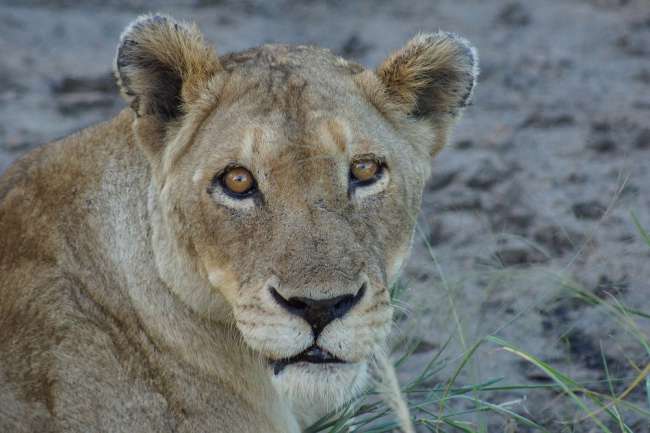
Informes de viatge Sud-Àfrica
